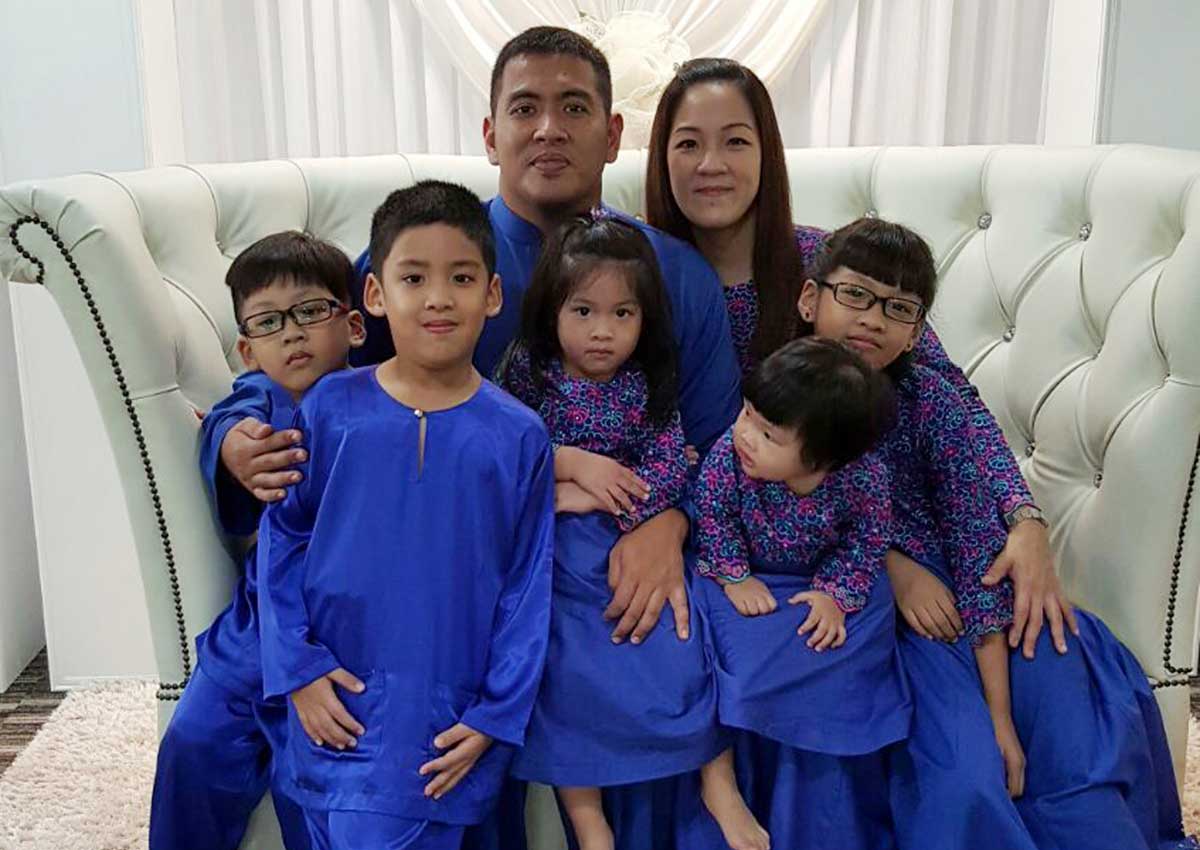When Ms Eileen Lim told her family that she was dating a Malay man, two of her eight older sisters objected to it.
“They were worried he would take more than one wife. They also told me it was not easy to convert to Islam,” said Ms Lim, whose parents are dead.
Today, nine years later, the stay-home mum has three girls and two boys with her husband Mirza Sutresno, 34, who is a consultant in a maid agency.
“My sisters eventually accepted our marriage, and our families get together whenever we can,” said Ms Lim, 37.
Her marriage goes against the preference of most Chinese, Malays and Indians polled in a recent survey on race issues.
The majority of the 2,000 Singapore residents surveyed said they preferred someone of the same race marrying into their family.
This is despite the jump in the number of inter-ethnic marriages in Singapore. Last year, such marriages made up 21.5 per cent of all marriages, up from 14.9 per cent in 2005.
The survey commissioned by Channel NewsAsia and conducted by the Institute of Policy Studies found that 98 per cent of Chinese prefer a Singaporean Chinese marrying into their family. Their preference for a Singaporean Malay is 24 per cent and Singaporean Indian, 21 per cent.
As for Malays, 95 per cent prefer a Singaporean Malay marrying into their family, while 63 per cent accept a Singaporean Chinese and 41 per cent, a Singaporean Indian.
With the Indians, 86 per cent prefer a Singaporean Indian marrying into their family, while 50 per cent are open to a Singaporean Chinese and 30 per cent, a Singaporean Malay.
The study also surveyed people on their racial preference when it comes to personal relationships, economic activity, social interaction and provision of services.
Participants were asked who they would share their personal problems with, ask for •help to manage their business, invite home for a meal, allow to play with their children or grandchildren, and engage to tutor their children or grandchildren in mathematics.
In each and every case, the preference was for someone of the same race. But as the activity or interaction becomes less personal, the acceptability level for another race becomes stronger.
For instance, 70 per cent of Chinese are fine with their children or grandchildren playing with Singaporean Malays and Indians.
With the Malays and Indians, it is 87 per cent for Singaporean Chinese.
Even in engaging a maths tutor, 97 per cent of Chinese want a Singaporean Chinese, 51 per cent a Singaporean Malay and 57 per cent a Singaporean Indian.
With the Indians and Malays, the corresponding figures for having a Singaporean Chinese tutor are 85 per cent and 88 per cent.
And 86 per cent of Malays want a Malay tutor and 78 per cent of Indians want an Indian tutor.
National University of Singapore sociologist Paulin Straughan said the findings highlight the importance of not leaving inter-racial relationships to chance. “We have to talk about multi-culturalism.The more we know of and about each other, the less apprehension we have,” she said.
As for marrying within the race, she said: “When people articulate their preference for such in-group relationships, it may not mean they have ill thoughts towards the alternative.”
It could suggest knowledge gaps in people’s understanding of the different ethnic groups, she added.
Mr Mirza said some of his in-laws think Malays are not hardworking. “I told myself to just do my best. People can tell,” he said.
There was also some friction between Ms Lim and her mother-in-law initially, when she stumbled over some Islamic practices.
She credits YouTube as the best resource to learn about Islam.
“I learnt how to wear the tudung, how to pray and why we should pray through the videos,” she said.
“But my understanding of Islam is still very basic. There is so much more to learn.”

This article was first published on Aug 20, 2016.
Get a copy of The Straits Times or go to straitstimes.com for more stories.






